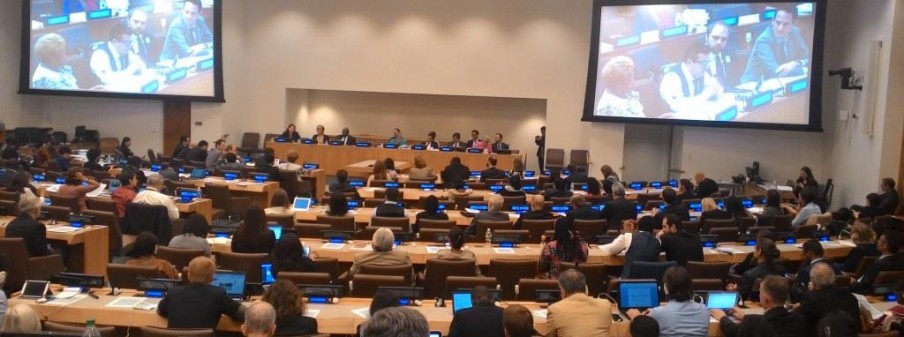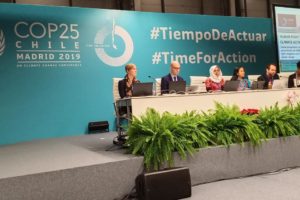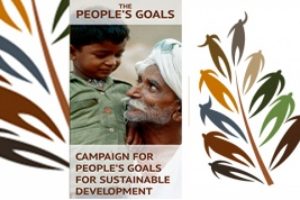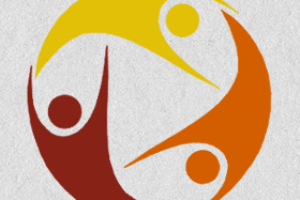IBON International Updates #5
Sustainable Development
[[{“type”:”media”,”view_mode”:”media_large”,”fid”:”1101″,”attributes”:{“alt”:””,”class”:”media-image”,”height”:”179″,”typeof”:”foaf:Image”,”width”:”480″}}]]
New York City, 29 September 2015 –More than 150 world leaders, hundreds of representatives from Civil Society Organizations (CSOs) and corporate executives attended the UN Summit on Sustainable Development from September 25-27 at United Nations (UN) headquarters in New York to formally adopt a new sustainable development agenda.Titled “Transforming our world: the 2030 Agenda for Sustainable Development”, the agreement contains a set of 17 goals and 169 targets that would come into effect on 1 January 2016, replacing the Millennium Development Goals set in 2000.
Before the formal opening of the Summit, Pope Francis addressed the UN General Assembly in the morning of the 25th. The Pope spoke at length on a range of subjects stressing the need to protect the natural environment, end social exclusion and promote social justice. He reminded world leaders that the “selfish and boundless thirst for power and material prosperity leads both to the misuse of available natural resources and to the exclusion of the weak and disadvantaged.”
The Summit itself opened with a film, titled “Earth from Space,” on the theme of people and planet, followed by live performances by singers Shakira and Angelique Kidjo. Yoweri Kaguta Museveni, President of Uganda and co-chair of the Summit, said the event marked the “dawn of a new era towards eradicating poverty, transforming economies and protecting the planet”. Lars Løkke Rasmussen, Denmark’s Prime Minister and co-chair of the Summit, said that the presence of so many leaders testified to the transformative potential of the new Agenda. UN Secretary General Ban Ki-moon described the occasion as “a defining moment in human history”.
On the other hand, Salil Shetty, Secretary General of Amnesty International, representing civil society, said that the skeptics couldn’t be blamed when they saw yet another summit declaration. He reminded world leaders, “You cannot claim to support sustainable development when you are reluctant to reduce the consumption of the rich or transfer technology […] you cannot lecture about peace while being the largest manufacturer of arms […] you cannot launch Sustainable Development Goals and in parallel deny a safe and legal route to refugees.”
Just before noontime, Rasmussen called on the UNGA to formally adopt the document A/70/L.1, “Transforming our World: The 2030 Agenda for Sustainable Development.” As Rasmussen gaveled the adoption, participants responded with a standing ovation, cheering and waving flags, as a short “Global Goals” film was played.
The Summit opening session was followed by three days of plenary and dialogue sessions, as well as numerous side events, forums and roundtables. In total, over 9,000 participants, including 136 Heads of State and Government, ministers, business leaders, and civil society attended the Summit.Big business was well represented with a good number of CEOs from the Fortune 500 in attendance including Bill Gates (Microsoft), Mark Zuckerberg (Facebook), Paul Polman (Unilever), Bob Collymore (Safaricom), Peder Nielsen (Novozymes), Will Marshall (Planet Labs), Reeta Roy (Mastercard Foundation), Philippe Zaouti, (MirovaSociétéAnonyme) and numerous others eager to showcase the private sector’s contributions to sustainable development and explore partnerships with the UN System.
Indeed, in its zeal to make the SDGs “famous” the UN Secretariat has hired a private firm to market the 2030 Agenda to the public. This firm, Project Everyone, has re-branded the 17 SDGs as “Global Goals (GGs)”and now claims ownership of the 17 icons that it is popularizing, with active help from celebrities and the UN Secretariat itself.
Barbara Adams of Global Policy Watch writes, “A political declaration by all UN Member States should be a global public good, available for everyone to use. But the small print of the Project Everyone website says that ‘all Content included on Our Site and the copyright and other intellectual property rights subsisting in that Content, unless specifically labeled otherwise, belongs to or has been licensed by Us’. That copyright protection clearly includes both the icons and the summary titles given to each of the goals.” This seems a galling portent of things to come as Agenda 2030 is rolled out for implementation – more privatization and enclosures of the commons.
Openly critical voices were the proud few at the Summit. Evo Morales, President of Bolivia, said that the world needed to ask why the Millennium Development Goals had not been achieved. He pointed to the policies of the capitalist system as the root causes of poverty as they served to concentrate wealth in the hands of a few individuals or countries, plundered natural resources and destroyed the environment. He reported that Bolivia has reduced extreme poverty from more than 40% to 17% and has attained most of the MDGs, which would not have been possible if resources remained in private hands.
At the interactive dialogue on “Fostering sustainable economic growth and transformation and promoting sustainable consumption and production”, Paul Quintos of the Campaign for Peoples Goals reacted to the refrain of Member States emphasizing the need for private-sector led growth. Quintos remarked that, “if poor countries manage to grow their GDP to catch up to the current average levels of consumption and production of high-income countries, we would need at least 3.4 Earths to provide the resources and absorb the waste — and that is assuming zero growth rates in the high-income countries of today. Clearly we need to place redistribution at the heart of the agenda for sustainable development.”
At the High-level Civil Society Event"Implementing the post-2015 agenda – building political leadership for transformative change", Eni Lestari of the International Migrants Alliance noted that the SDGs include target 8.6 that promises to protect rights and secure working environments for migrant workers. She said “the proposed indicator will simply measure how many dead and injured workers there are. We want more than reduced deaths. We want living wages. We want to measure how many workers are able to join unions and collectively bargain. We want full employment and decent work both in our own countries and countries where we work. We want an end to criminalization and discrimination against migrants. We want to replace economies designed to accrue more wealth to the obscenely rich and to heighten corporate power with economies that share our wealth, support the common good and deliver Development Justice.”
Speaking at the same event, Alejandro Barrios of the Peoples Coalition for Food Sovereignty concluded that “the 2030 Agenda for Sustainable Development is not an agenda for transformation. It fails to challenge existing relations of power and wealth distribution. And while the 2030 Agenda contains much by way of promises, real hope lies elsewhere — in the people challenging the existing economic and political order.”
Reference:
Paul Quintos<pquintos@iboninternational.org>



